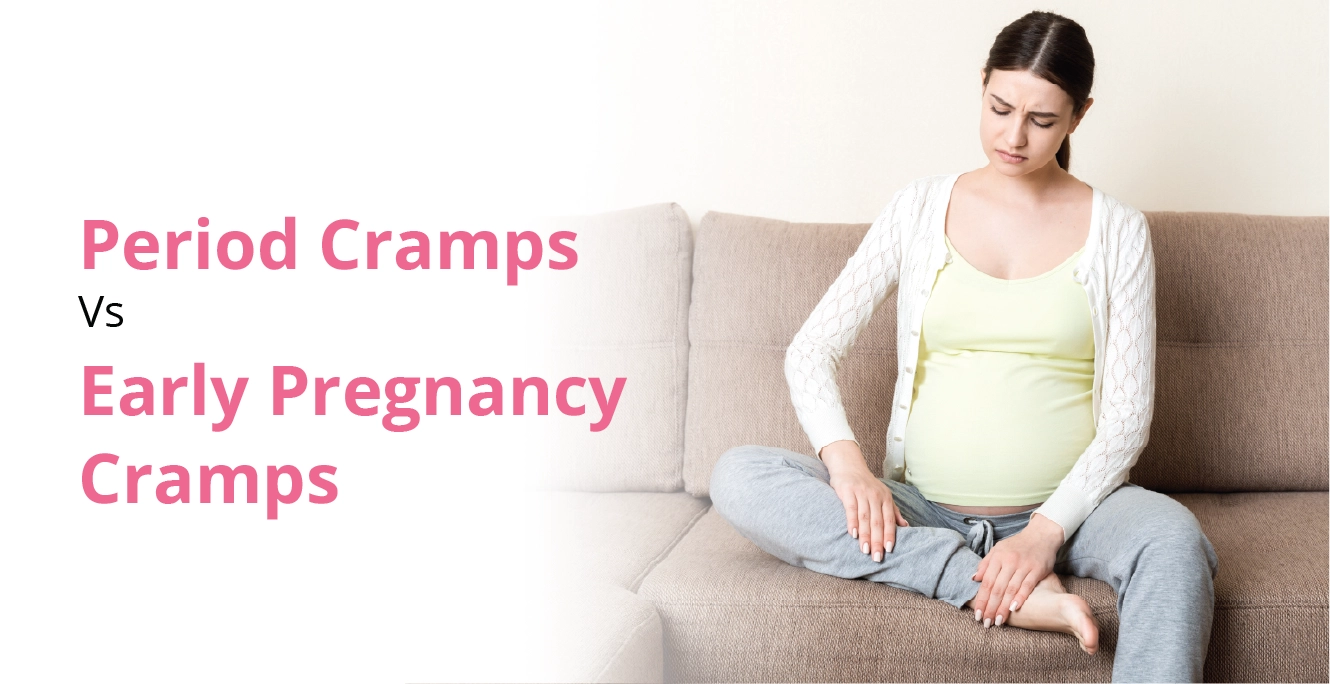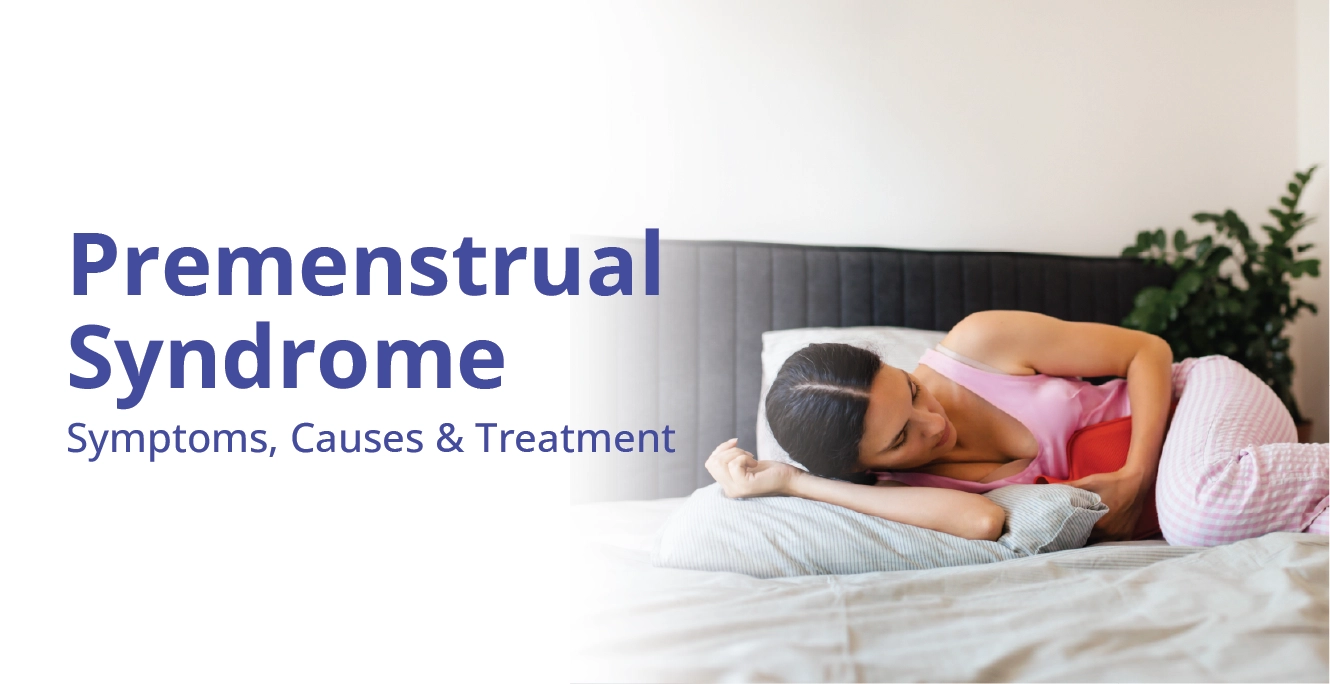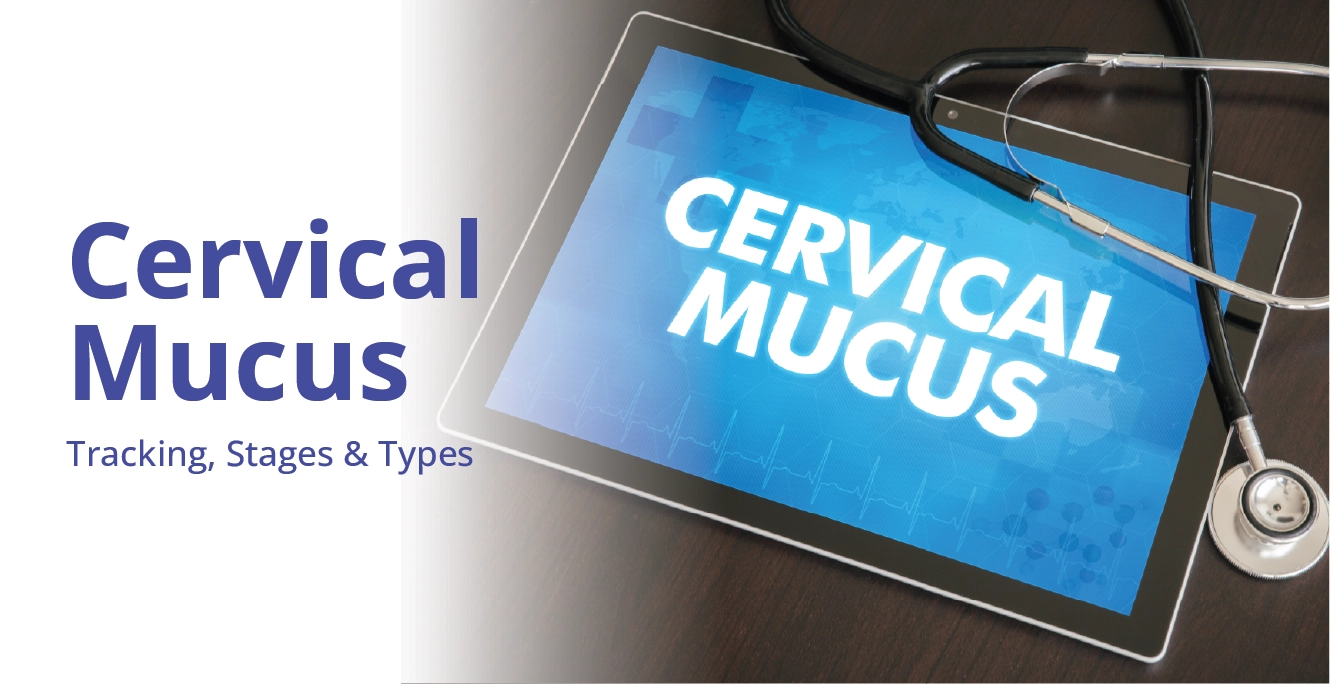
Living with PCOS and Regular Periods: What You Need to Know

Table of Contents
Millions of women worldwide suffer from a common ailment known as polycystic ovarian syndrome, or PCOS. Hormonal imbalances are its defining feature, and they can cause a wide range of symptoms and health issues. Recognising how PCOS affects menstrual cycles and how important regular periods are to general health and well-being is one of the most important parts of managing the condition. In this blog, we will discuss PCOS, its relationship to regular periods, and what you should know to manage life with this condition.
Understanding PCOS Condition
A complicated hormonal condition affecting the ovaries is called PCOS. It is among the most prevalent reproductive health issues affecting women who are fertile. Although the precise origin of PCOS is yet unknown, a mix of environmental and genetic factors are thought to be involved.
Period irregularities, excessive hair growth, acne, and ovarian cysts are common signs of PCOS. In addition to gaining weight, women with PCOS are more likely to develop insulin resistance, type 2 diabetes, and cardiovascular disease. The symptoms of PCOS can differ greatly from person to person, making it difficult to identify and effectively treat the disorder.
Regular Periods and PCOS (Polycystic Ovarian Syndrome)
A regular menstrual cycle is a sign of a healthy reproductive system. Usually occurring every 21 to 35 days, normal menstruation lasts for 2 to 7 days. The uterine lining increases every month in anticipation of a possible pregnancy. During menstruation, the uterine lining sheds if pregnancy is not achieved.
On the other hand, irregular or nonexistent periods are common in women with PCOS. Hormonal abnormalities, particularly high levels of androgens (male hormones) and insulin resistance are to blame for this. When ovulation is disturbed and the ovaries do not release eggs as they should, irregular periods occur in PCOS. The hormonal feedback loop that controls menstruation is disrupted in the absence of ovulation.
PCOS irregular cycles have repercussions beyond problems with reproduction. The general health of a woman might be impacted by irregular cycles. Periods on a regular basis assist guard against uterine lining hyperplasia, which can result in endometrial hyperplasia and, in certain situations, endometrial cancer. Therefore, having regular periods is not only convenient but also essential to a woman’s health.
Diagnosis and Medical Guidance
It is imperative that you seek medical attention if you suspect PCOS, have irregular periods, or are suffering any connected symptoms. PCOS is usually diagnosed by a medical professional based on a patient’s medical history, symptoms, and results of multiple tests, such as blood work and ultrasounds to check for ovarian cysts.
A timely diagnosis is necessary for optimal PCOS management. A prompt diagnosis makes it possible to create a customised treatment plan that takes into account your unique requirements and worries. In order to minimise potential long-term health concerns and treat PCOS symptoms, your healthcare provider will collaborate with you.
Lifestyle and Diet For PCOS
Making lifestyle adjustments is a common part of living with PCOS in order to better control symptoms and enhance general health. Exercise and diet are important factors in this process. It may be advantageous for women with PCOS to follow a low-glycemic index diet because they are more likely to develop insulin resistance. This entails limiting processed and sugary meals and ingesting nutritious grains, lean proteins, and an abundance of fruits and vegetables.
Maintaining a healthy weight and enhancing insulin sensitivity also requires regular physical activity. Strength training and cardiovascular exercise combined can help reduce PCOS symptoms.
Maintaining a balanced lifestyle can be very helpful in controlling PCOS and encouraging regular menstruation.
Medication and Treatment
Medication may occasionally be recommended to help control additional PCOS-related symptoms and menstruation. Due to its ability to help regulate the menstrual cycle and lower the risk of endometrial cancer, birth control pills are frequently advised. Anti-androgen drugs may also be recommended to treat symptoms including acne and excessive hair growth.
Fertility drugs like Metformin or Clomiphene may be advised for women who are attempting to conceive. These drugs have the ability to increase ovulation and increase the likelihood of getting pregnant.
A healthcare provider should be consulted regarding treatment plans, as they will be customised to meet the unique needs and objectives of each patient.
Emotional and Psychological Well-Being
It can be emotionally taxing to live with PCOS. Mental health, body image, and self-esteem may all be impacted by the illness. Recognising these emotional components and getting help when required are crucial. Making connections with support groups, therapists, or counsellors who specialise in PCOS-related concerns is beneficial for many women.
Stress and anxiety management are equally crucial. The emotional effects of PCOS can be lessened, and the general quality of life can be enhanced, by engaging in activities like mindfulness, meditation, and relaxation techniques.
Fertility and Family Planning
PCOS can have an impact on fertility, but it’s not a deal-breaker. Many PCOS-afflicted women go on to become pregnant in a healthy way. However, family planning and fertility preservation require deliberate measures.
With your healthcare practitioner, go over your goals regarding conception and consider treatments such as In vitro fertilisation (IVF), which can be especially beneficial for PCOS-affected women.
Living Well with PCOS
Many women with PCOS live fulfilling lives despite the difficulties it poses. Although PCOS is a lifetime disorder, it does not characterise a person. Women with PCOS can have fulfilling lives, achieve their objectives, and keep their health and well-being intact if they receive the appropriate information, assistance, and medical care.
Conclusion
Coping with PCOS and regular cycles is a journey that calls for comprehension, flexibility, and fortitude. Women with PCOS can effectively manage their illness and enjoy a high quality of life by getting timely medical counsel, treating mental well-being, and adopting lifestyle improvements.
Recall that you are not by yourself. You can get a lot of support from support groups, medical experts, and resources to aid you along this journey. You may overcome the difficulties caused by PCOS and live a long, healthy life if you have the correct techniques and an optimistic mindset. If you are facing issues with pregnancy because of PCOS condition, consult our fertility expert today. You can either call us on the given number or book an appointment by filling out the form with the required details and our medical coordinator will call you shortly in order to provide all the necessary details.
Our Fertility Specialists
Related Blogs
To know more
Birla Fertility & IVF aims at transforming the future of fertility globally, through outstanding clinical outcomes, research, innovation and compassionate care.
Had an IVF Failure?
Talk to our fertility experts

 Our Centers
Our Centers















